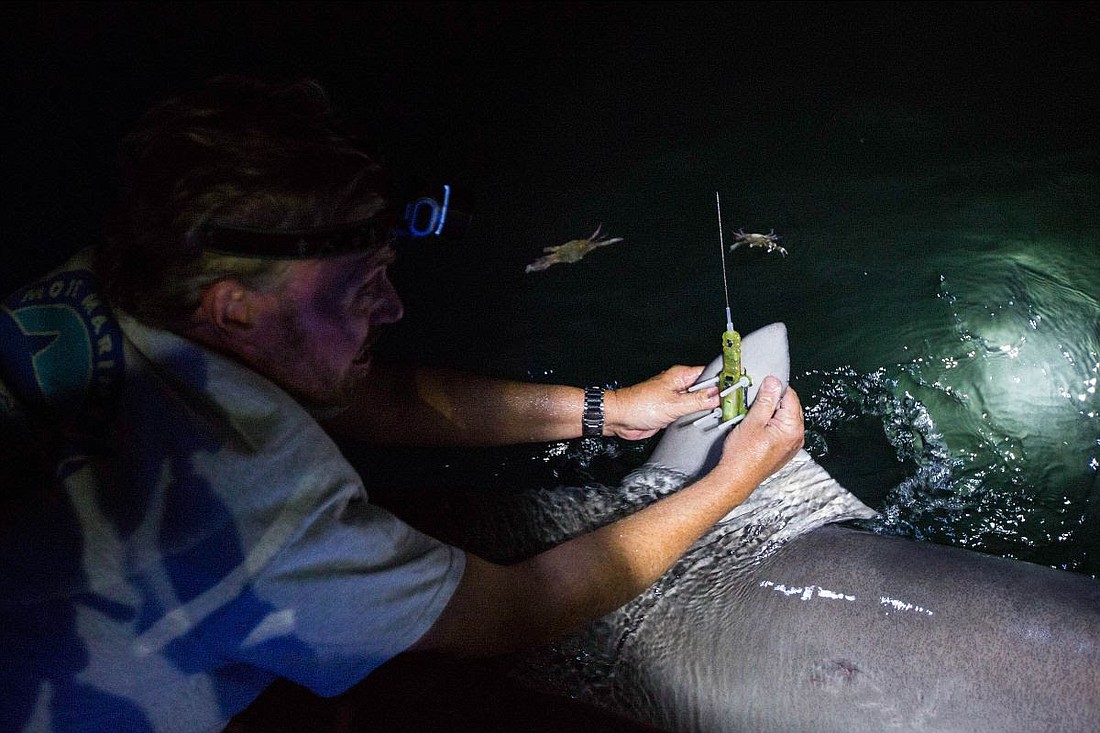- November 14, 2024
-
-
Loading

Loading

Mote Marine Laboratory and Aquarium will begin research to shed light on how highly migratory species — specifically, sharks — in the Gulf of Mexico and Atlantic Ocean behave and live their far-roaming lives, according to a news release from the laboratory.
A grant from the National Oceanic and Atmospheric Administration Sea Grant Program will create the Pelagic Ecosystem Research Consortium. Mote, along with Auburn University and Nova Southeastern University, will be led by the University of Maine to study highly migratory species, attempting to improve stock assessment, management and sustainability of species including tuna, swordfish and sharks. Since these species cover a lot of water throughout their lives, little is known about what they do during those lives.
“This vital funding comes at a time when shark issues have come to the forefront, with some species still in decline and others on the rise, and we need to have the best available science to manage our fisheries and inform public policy about sharks,” said Robert Hueter, Director of Mote’s Center for Shark Research.
Mote has a long history of shark expertise, having been founded out of a combined effort by Eugenie Clark, the “Shark Lady,” and philanthropist Anne Vanderbilt, according to a history on Mote’s website. Clark’s work focused mostly on the behavior of sharks and the lab became known for it, and still is today.
Highly migratory species are sought after commercially and recreationally, yet there is still much to learn about the life history of the animals, said University of Maine assistant research professor Walter Golet in the release. Learning the life history will improve stock assessments of the species, which determine their population status, fishing quota and sustainability and if a species is being overfished or not, according to NOAA.
PERC will focus on reducing the amount of unwanted fish caught during commercial fishing, understanding the life history of migratory animals, mortality after release and other factors.
The NOAA grant will provide $400,000, while Mote and its partner organization OCEARCH will match $200,000 to cover total costs of the program. OCEARCH is also providing $75,000 worth of time aboard its shark research vessel for the program.